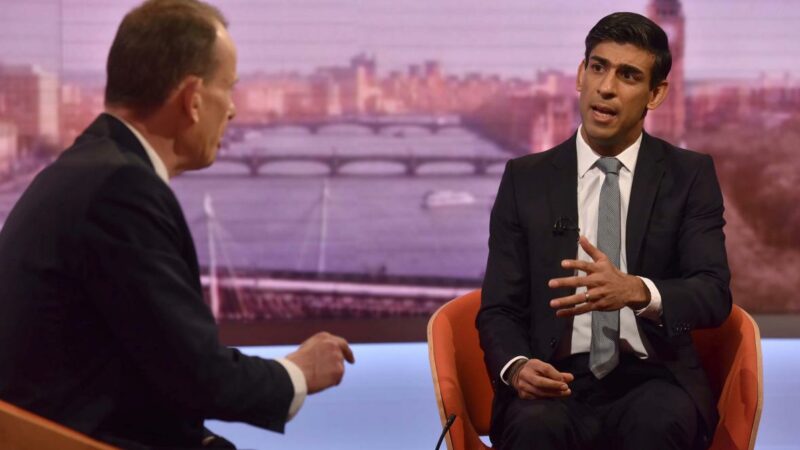Nothing for local authorities, public sector workers or the self-employed.

The UK economy shrank by 20% between March and April. With the lockdown easing though, the economy is gradually reopening but i needs government help to revive and stem the daily tide of redundancies.
The good news is that the Chancellor has announced a £30bn plan for jobs. The total coronavirus public spending now is £190bn, including £32bn on support for health services during the pandemic. The bad news is that the spending on jobs is insufficient, inconsistent and leaves out numerous sectors.
It’s just too small. At the end of 2019, the UK gross domestic output (GDP) was estimated to be about £2,210bn. So the government’s job creation package of £30bn is just 1.3% of GDP.
Many sectors which need it are not helped. There’s nothing extra for local authorities who are trying to restructure town centres, modify schools, provide local services and retain jobs.
And there are no wage rises for public sector workers to bring them up to the level of their wages in 2010 and stimulate the economy.
And the Chancellor did not help the nearly three million freelance and self-employed workers who have been unable to claim on the Government’s previously announced support schemes due to various restrictions.
The higher education sector was also left out. It is teetering and 13 universities could go bankrupt leading to loss of jobs, exports and contributions to the local economies.
Sunak’s help was more general. Employers will receive a bonus of £1,000 per employee for bringing back staff who were furloughed and remain employed through to January 2021.
This measure could cost £9bn and is manna from heaven for employers who were going to bring back staff anyway. In the absence of long-term stringent conditions, some employers may bring back staff and then fire them in January.
Another measure was the Kickstart Scheme, which offers £2.1bn to employers to create new jobs for 16 to 24-year-olds, working for a minimum of 25 hours per week paid at least the minimum wage.
If employers meet these conditions, the government will pay young people’s wages for six months, plus an amount to cover overheads. So employers can hire young people now and then fire them six months later.
To avoid a spike in unemployment at the end of the subsidy period, the government needs to impose long-term obligations, wherever possible, on employers, but has failed to do so.
The government is also to spend £2 billion on Green Homes Grant to enable selected households to insulate homes. This can temporarily create new jobs, but no steps have been taken to start new green industries or reduce our dependence on fossil fuels.
Another policy is that the stamp duty threshold for house purchase is to be raised from the current £125,000 (or £300,000 for first-time buyers) to £500,000 until March 2021. The government estimates that this will reduce stamp duty by an average of £4,500 and cost £3.8bn. Merely buying and selling the old stock of homes will not create many new jobs.
The median annual earnings of a full-time UK employee are just over £30,000, and many earn far less than that. Many experts regard a mortgage of 4 to 4.5 times the annual salary as affordable, but that won’t be enough to buy a house in most parts of the UK.
The governments stamp duty reduction is unlikely to help many young people or first-time buyers. Previous stamp duty reductions benefitted builders and estate agents who pushed up the house prices. The same will happen again.
People need affordable homes. In 2015, the government promised to build 200,000 starter homes for first-time buyers and put young people on the ladder to home ownership. By 2019, despite spending £2bn, the government failed to build a single house.
For the next six months, the VAT rate on food, accommodation and attractions is to be reduced from 20% to 5% in the hope that this will encourage people to revive the hospitality sector. This package will cost around £4.1bn. However, childcare facilities, gyms and sports clubs are excluded from this initiative.
In addition, the government is offering a discount of up to £10 to people who eat out at designated places. This will cost around £0.5bn. This is bizarre as many restaurants and attractions are already offering discounts to entice customers.
With social distancing rules in force and a fear of a second spike in coronavirus cases, it is hard to see mass bookings for restaurants. Many people struggling to pay rent, gas, water, electricity and other bills are unlikely to dash to restaurants. They would have been greatly helped by a voucher which could be spent anywhere.
In the current environment, any government support is to be welcomed, but in common with previous initiatives, the latest intervention is inadequate and has too many holes and exceptions.
What is even more worrying is the clamour by Conservative MPs to eliminate the public spending deficit and the Chancellor’s support for such sentiments. This is a sign that a new wave of austerity is likely to be unleashed in the not too distant future.
Prem Sikka is Professor of Accounting at University of Sheffield and Emeritus Professor of Accounting at University of Essex. He is a Contributing Editor to LFF and tweets here.
Left Foot Forward doesn't have the backing of big business or billionaires. We rely on the kind and generous support of ordinary people like you.
You can support hard-hitting journalism that holds the right to account, provides a forum for debate among progressives, and covers the stories the rest of the media ignore. Donate today.



